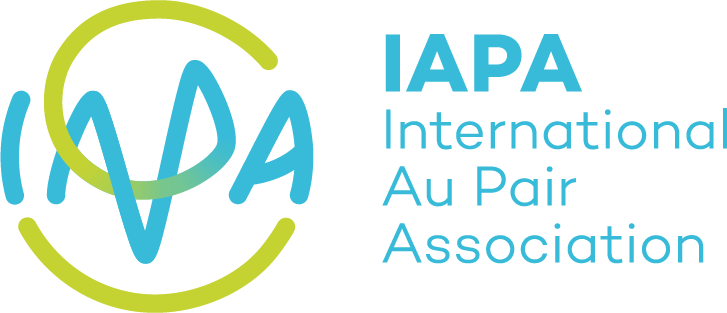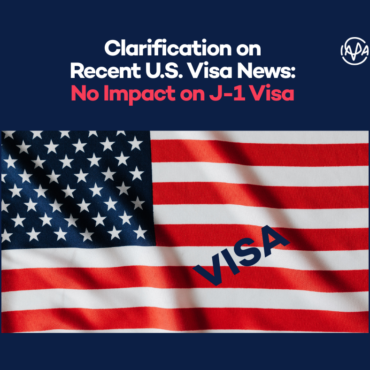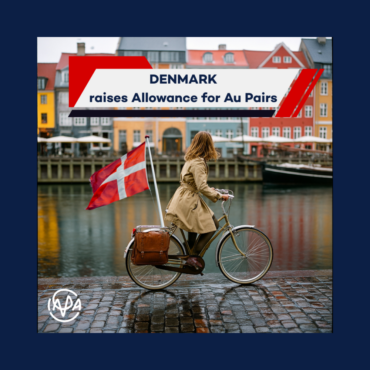Work in USA: How to become an au pair with the J-1 visa
Thanks to the enactment of the Au Pair Program in 1989, there are many opportunities available today for prospective au pairs who wish to study and work in America. It’s a great opportunity to travel to an exciting new land and learn a few new things. You’ll be experiencing a different culture on a daily basis, and the bond you form with your host family will last long after you return home. Remember that
What is the meaning of au pair?
“Au pair” is a French term meaning “equal to”. While working as an au pair you will be treated as a temporary family member, going on group excursions and sharing meals at dinnertime. You’ll also be able to spend your free time how you please.
Your duties will include:
- Waking the children
- Transporting the children to and from school
- Entertaining the children
- Helping with homework
- Taking them on fun outings
- Preparation of light meals
- Care for the children’s laundry
- Tidying up the children’s bed and bathroom
In addition to this, au pairs must take courses of their choosing at an accredited college or university. While working and attending classes, they are provided with a private bedroom, meals, payment of $195.75 per week, 1.5 days off per week, one full weekend off each month, two weeks’ paid vacation per year and the first $500 toward the cost of the required course work. They are expected to work a maximum of 45 hours per week for one year (no more than 10 hours per day) and complete six semester hours of academic credit.
Alternatively, the US EduCare Au Pair Program is available to work with American families who have school-age children and thus require less care. In this program, the au pair works fewer hours per week (not more than 30 hours) for a minimum of $146.81 per week while completing 12 semester hours of academic hours instead of six. In this case, the host family would pay $1000 in educational expenses.
Full list of au pair agencies
There are only 14 agencies officially designated to administer the au pair program in America. A prospective au pair must go through one of these programs.
- A.P.EX. American Professional Exchange, LLC (ProAuPair)
- Agent Au Pair
- American Cultural Exchange (Go Au Pair)
- American Institute for Foreign Study (Au Pair in America)
- Au Pair Foundation
- Au Pair in America
- Au Pair International
- AuPairCare
- Cultural Care Au Pair (EF Education First)
- Cultural Homestay International
- EurAupair
- Expert Group International (Expert AuPair)
- InterExchange Au Pair USA
- International Au Pair Exchange
- USAuPair
Information about the J-1 visa
The J-1 visa must be filed by prospective au pairs. It permits au pairs to reside legally in America for a year while caring for children in a program-approved family. The J-1 visa has an application processing fee of $160 (nonrefundable). Once your visa has been issued, you are qualified to enter America. However, you may not do so more than 30 days before the program start date. After completion of the exchange program, you have a grace period of 30 days to return home. J-1 visa conditions declare that an au pair must:
- Meet the required responsibilities to the host family
- Not accept paid employment beyond what is designated by the program
- Return to his or her original country after the year-long (or extended) stay has finished
Additionally, the Department of Homeland Security permits J-1 visa holders, if so desired, to take an additional month to travel in the United States after the conclusion of the program. During that time, you are free to travel independently around the country but may not provide further child care.
If an au pair has enjoyed his or her stay, the normally year-long program may be extended by an addition six, nine or 12 months. The au pair may either stay with the same family or transfer to a completely new one.
What is the J-1 visa waiver?
When you enter America using a J-1 visa, in some cases there is a requirement after completion of the au pair program to spend at least two years back in your home country. This applies to you if while you are serving as an au pair you take graduate-level medical education courses or you possess a skill your country deems to be necessary to its development. To find more information about this, visit the official Exchange Visitor Skills List and check for your country.
If you are subjected to this requirement, you must spend a cumulative total of two years before you can:
- Adjust your status while in America to immigrant visa/lawful permanent resident status
- Receive an immigrant visa
- Receive a fiancé, intracompany transferee, or temporary worker visa
It is possible to obtain a waiver for this requirement. You may apply for a waiver if:
- Your country issues a No Objection Statement stating that it has no objection to you not returning home to your country
- A U.S. Federal Government determines that your departure back home would be detrimental to its interest and thus can request an Interested Government Agency Waiver on your behalf
- You believe you will be persecuted based on your race, religion, or political opinion in your home country
- Your departure means great difficulty to an American or lawful permanent resident spouse or child
Taking the first step to becoming a great au pair
Ensure that you meet the requirements to work as an au pair in America before you begin. You must:
- Be 18-26 years old
- Have at 200 hours of professional or practical childcare experience (if caring for a child under two years of age)
- Have complete secondary school education
- Be proficient in English
- Have no criminal record
If you meet those requirements, make sure you are entering this program with the right mindset. Be ready to dedicate many hours each week caring for very young children and also focusing on studies, but also keep in mind the opportunities available by working in a foreign country. You will be fully immersed in another culture. Take advantage of any offers your host family makes to take you on excursions and outings, as it will be a great way to experience America and strengthen your bond with your family and the children you are caring for.
Source: Immigration Direct




